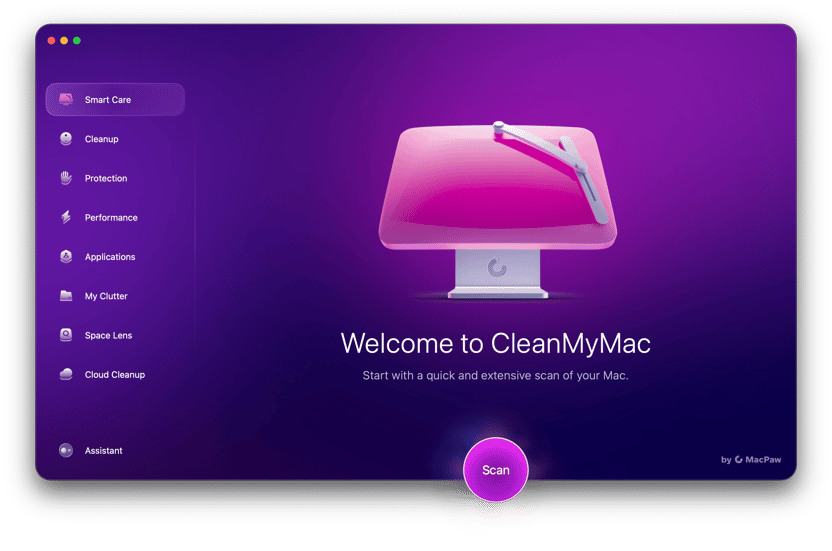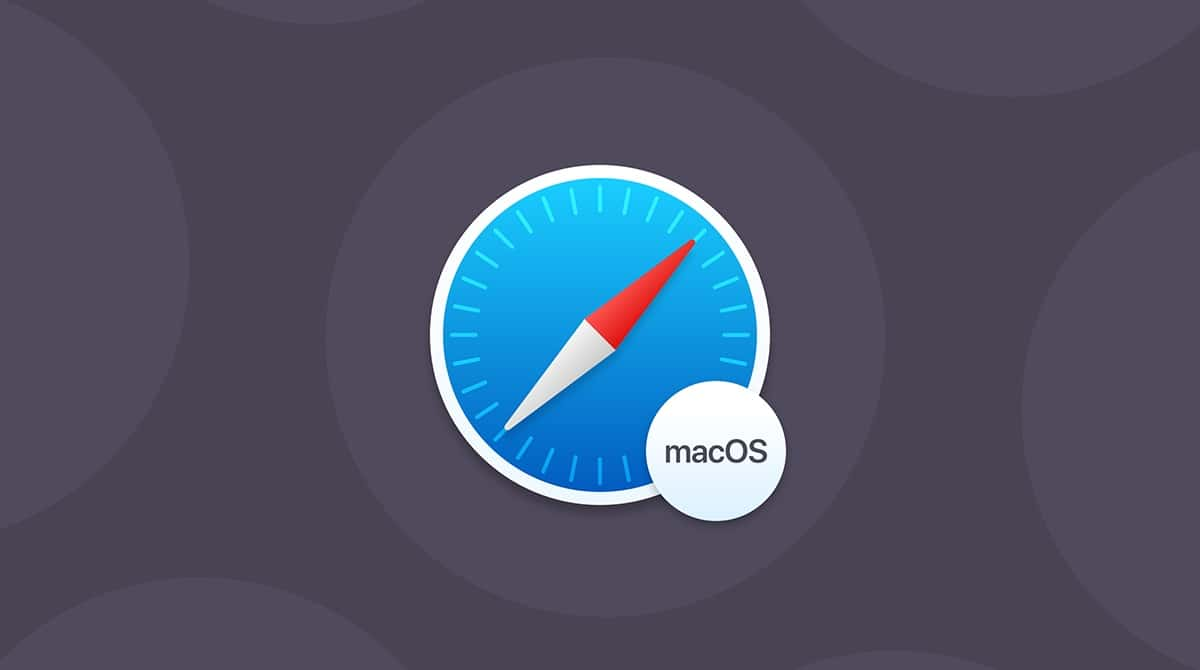Do you encounter a frozen app on your Mac and can’t quit it normally? That spinning beach ball makes you crazy? Instead of just sitting and getting more frustrated, force quit an app that’s not responding. Thankfully, you’ve got options to close the unresponsive apps.
We’ve prepared six Mac force quit ways, so you can pick the one that works best for you. Moreover, we’ll tell you how to prevent the apps from hanging and what to do if force quit isn’t working on a Mac.
What is the difference between Force Quit and Quit
When you Force Quit an app, your macOS shuts it down immediately. On the other hand, if you Quit an app, you can save any unsaved changes first.
Force Quit is preferable over quitting an application normally if it is unresponsive — remember when you tried to quit an app, and all you saw was an icon dancing in the Dock or a spinning wheel? It is when Force Quit comes into play. Given that it does not let you save changes, use it only if you really need to deal with the misbehaving app.
1. How to force quit from the Apple menu
Here’s how to force quit an app from the Apple menu:
- Click the Apple logo in the top left corner of your screen.
- Select Force Quit.
- Choose the app that’s not responding.
- Click the Force Quit button.
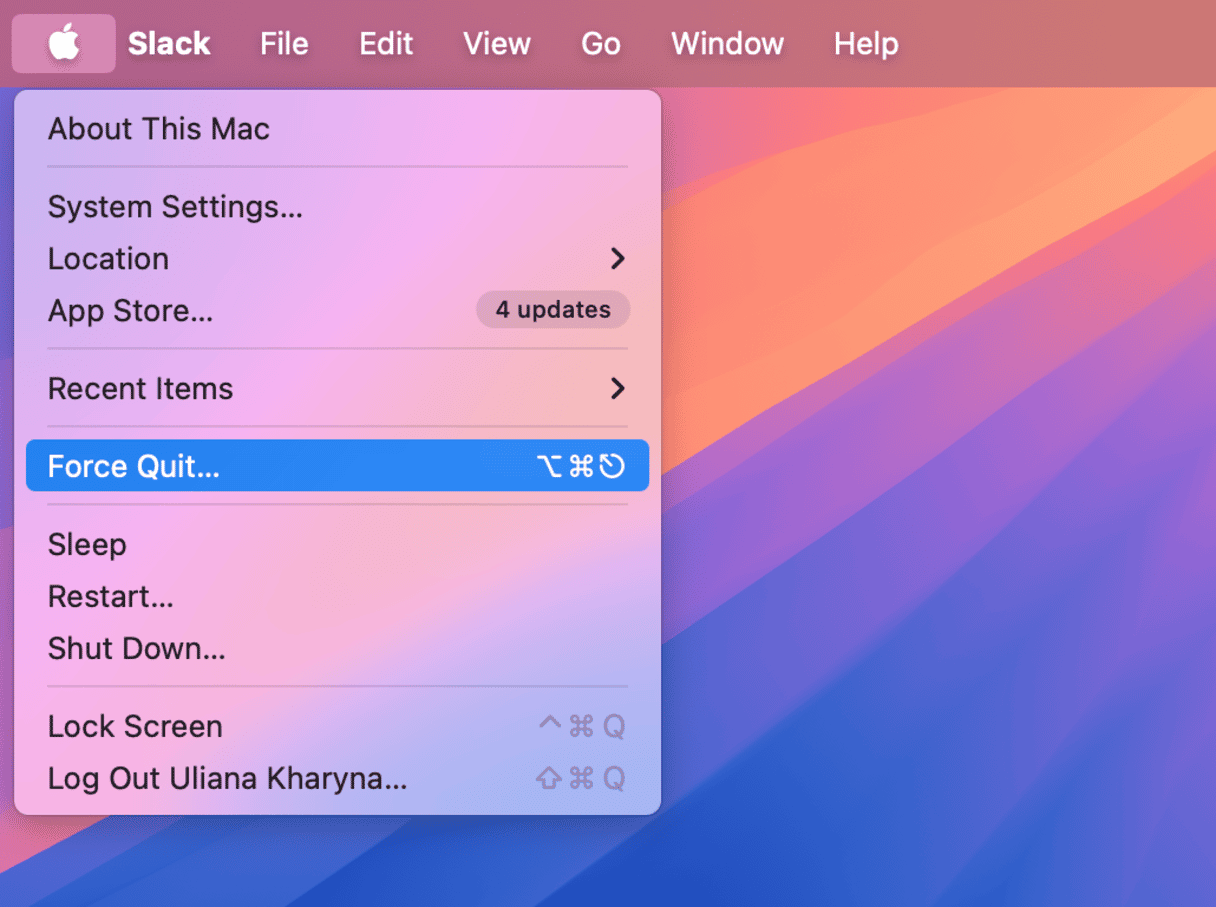
2. How to force quit apps with one click
A smart maintenance app like CleanMyMac has a problem of force quitting on Mac covered. You can easily force quit a program on your Mac with its Menu app. To access it, click a little iMac icon in the menu bar. It has a special Memory tab that allows you to identify apps consuming too many resources and quit it with a click.
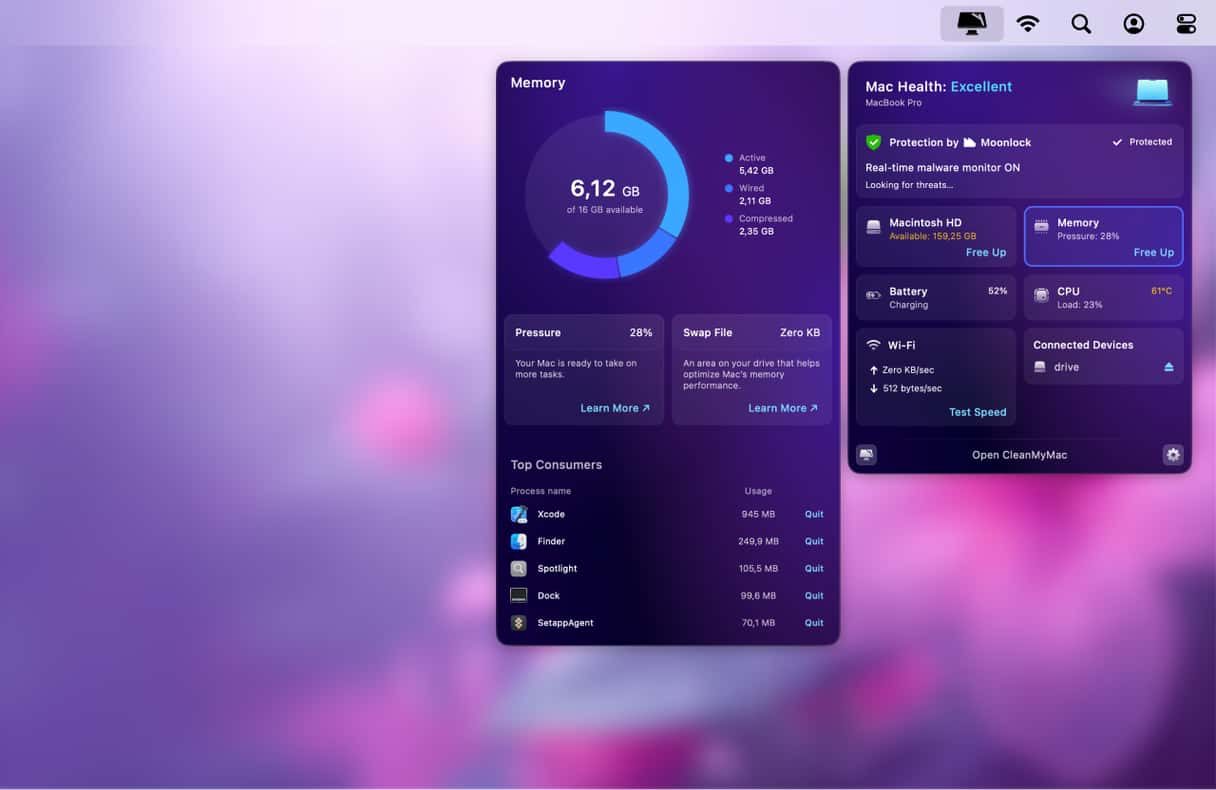
This helpful app also helps you force quit hung applications. Direct access saves you time and allows you to fix a frozen app in a matter of seconds. CleanMyMac also takes care of other performance issues, so if you want to get alerts when something goes wrong on your Mac, give it a try. To use the Menu app, all you have to do is Enable Menu from CleanMyMac Settings. Get a free trial of the app.
3. How to force quit from the Dock
If you wonder how to force quit an app on Mac using the Dock, check out these simple steps:
- To open the dock menu, right-click the application icon you want to shut down or click the item and hold.
- Hold an Option (Alt) button, so the Quit menu changes to Force Quit.
- Click Force Quit.
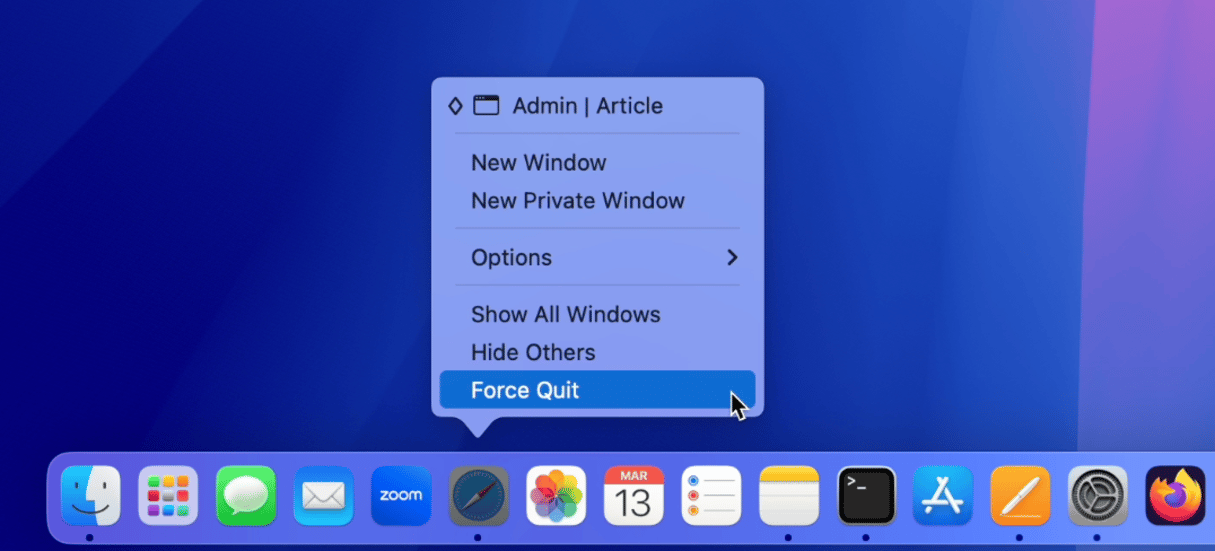
As simple as that!
4. How to force quit using the keyboard shortcut
Alternatively, you can use a force quit Mac shortcut to close an unresponsive app. Do the following:
- Press and hold the following keys: Command + Option + Esc.
- Select the app you want to quit from the dialogue box.
- Click Force Quit.
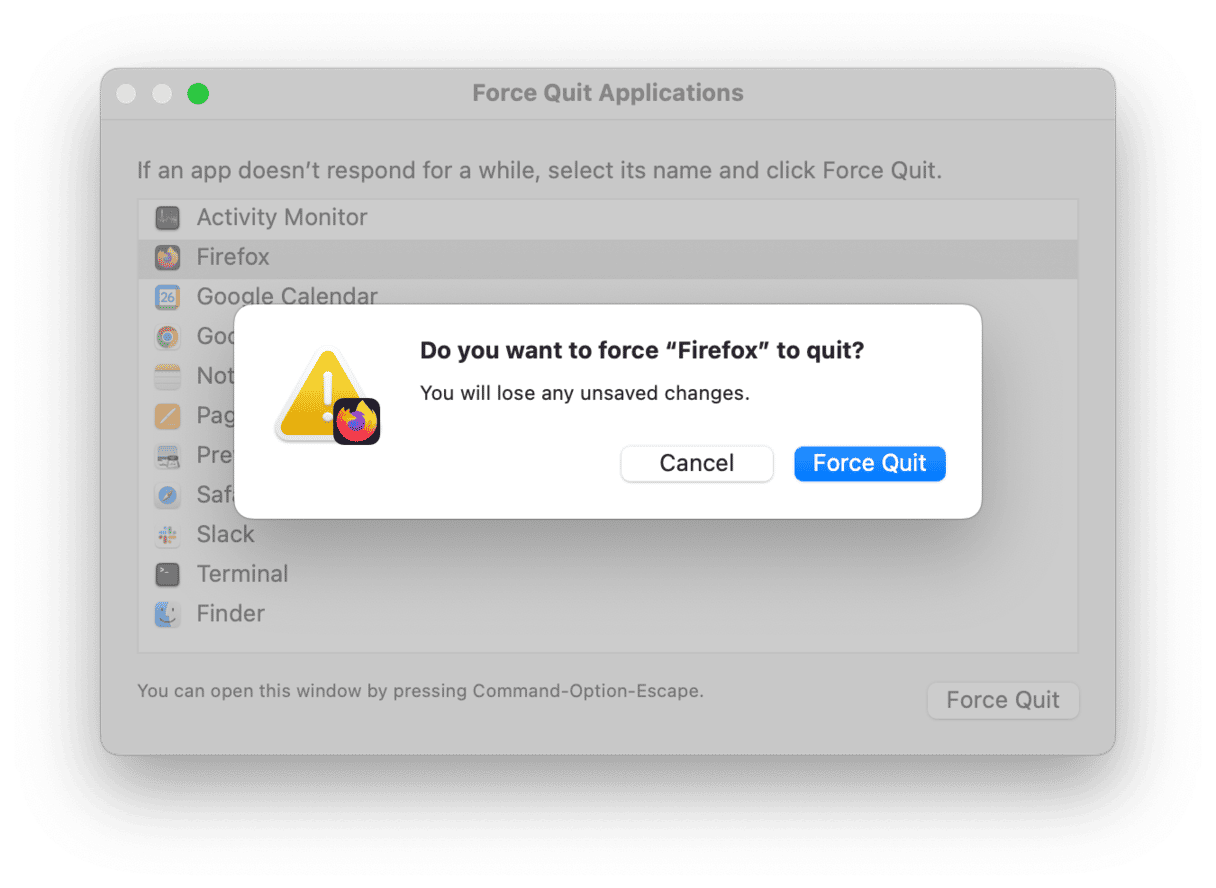
This method of force quit command Mac is especially useful if your mouse cursor is lagging a bit.
5. How to force quit via Activity monitor
If none of the above work for you, you can try Activity Monitor. It is a built-in tool that allows to check what is going on in the background and quit apps or processes you no longer need. Here’s how it works:
- Open Activity Monitor via the Spotlight search or from Applications > Utilities.
- Select the app you want to force quit and click an X in the toolbar.
- Click Force Quit.
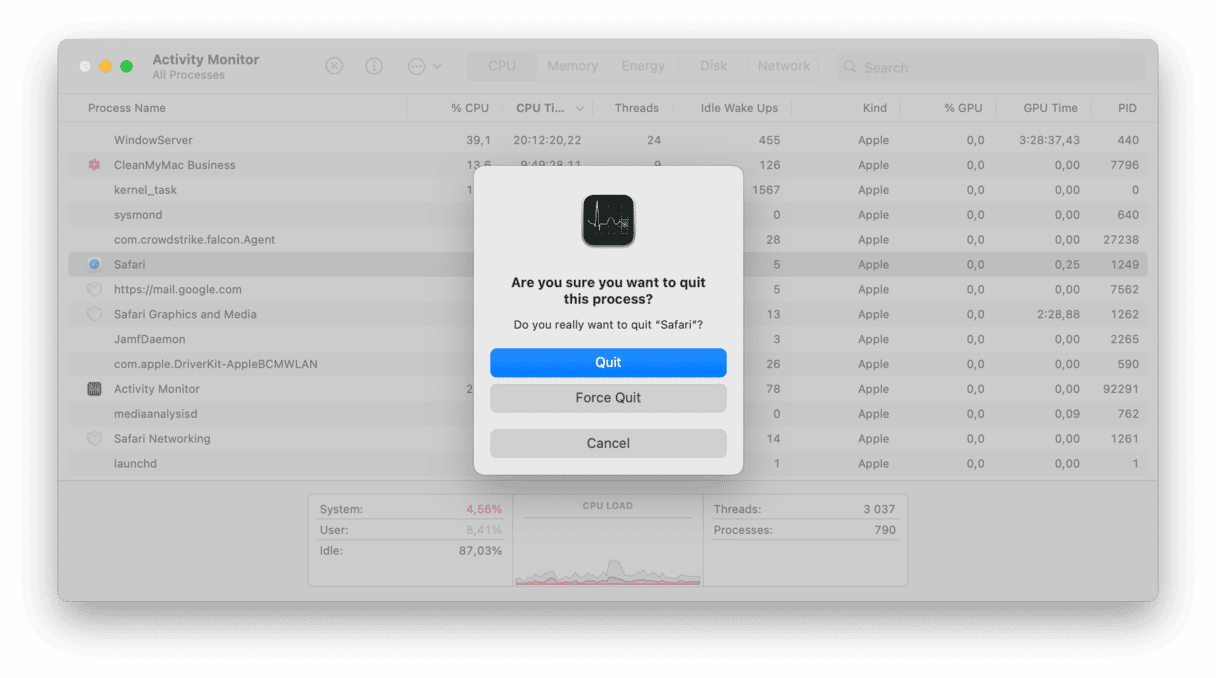
6. How to force quit using the Terminal
If you prefer a command line method to solve the problems, you can quit an unresponsive app via Terminal. Here’s what you should do:
- Open the Terminal.
- Type the following command:
killall [application name](for example, if Spotify isn’t responding, typekillall Spotifyin the window that opened). - Press Return. Your application will be shut down immediately.
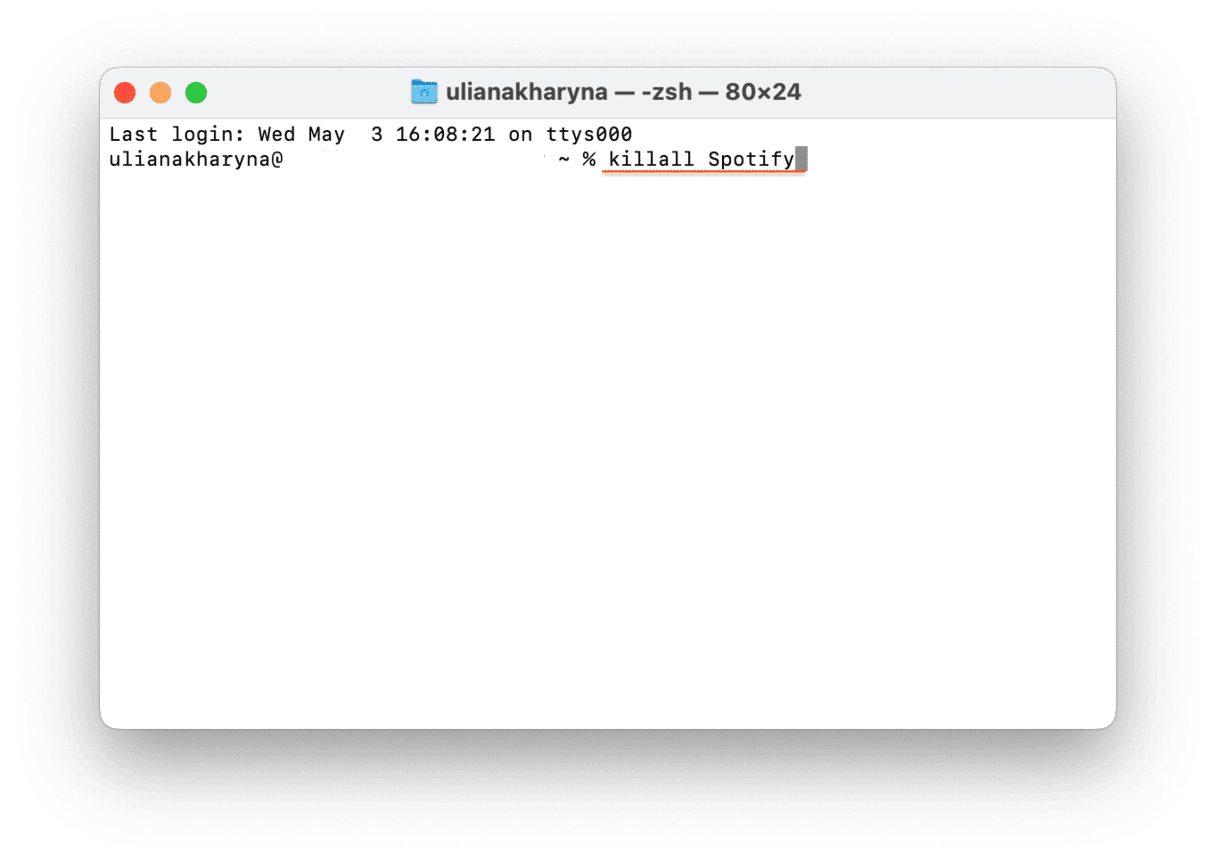
If an app’s name consists of more than 2 words (like “Google Chrome”), you should put its name in quotation marks.
Note that the killall command works at the system level, and the autosave option doesn’t work. Be careful not to lose your unsaved data.
What to do if force quit isn’t working on a Mac
In most cases, you’d easily force quit an app with one of the tips we recommend. However, on rare occasions, it won’t work. To solve the problem, you need to shut down your computer and boot it again. All you need to do is go to the Apple menu and select Restart.
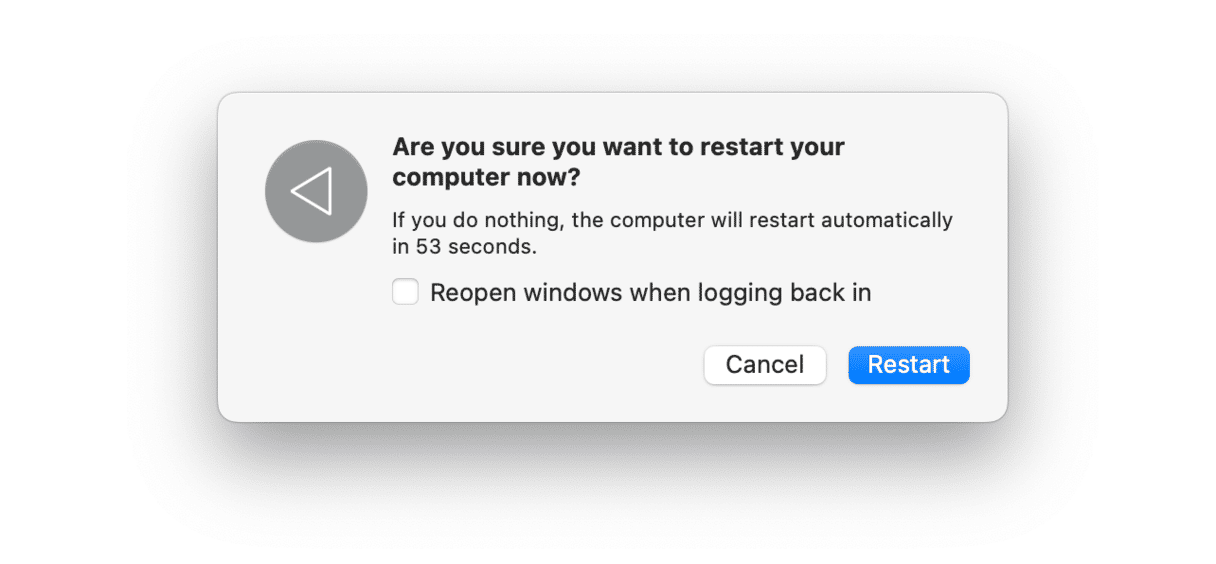
If your Mac has frozen and doesn’t restart, here’s how to force reboot it:
- Hold down the power button until your Mac shuts down completely. This may take about 5 seconds.
- Wait for a few seconds and then hit the Power button again to boot the Mac.
As you may presume, this method is not perfect. Any unsaved information may be lost due to the sudden shutdown. However, sometimes it’s the only way to make your computer running.
That’s it. We hope this guide has helped you force close Mac app that’s not responding. Keep in mind that with regular maintenance, your computer will be in tip-top shape, running at its best. Thanks for reading, and stay tuned!




